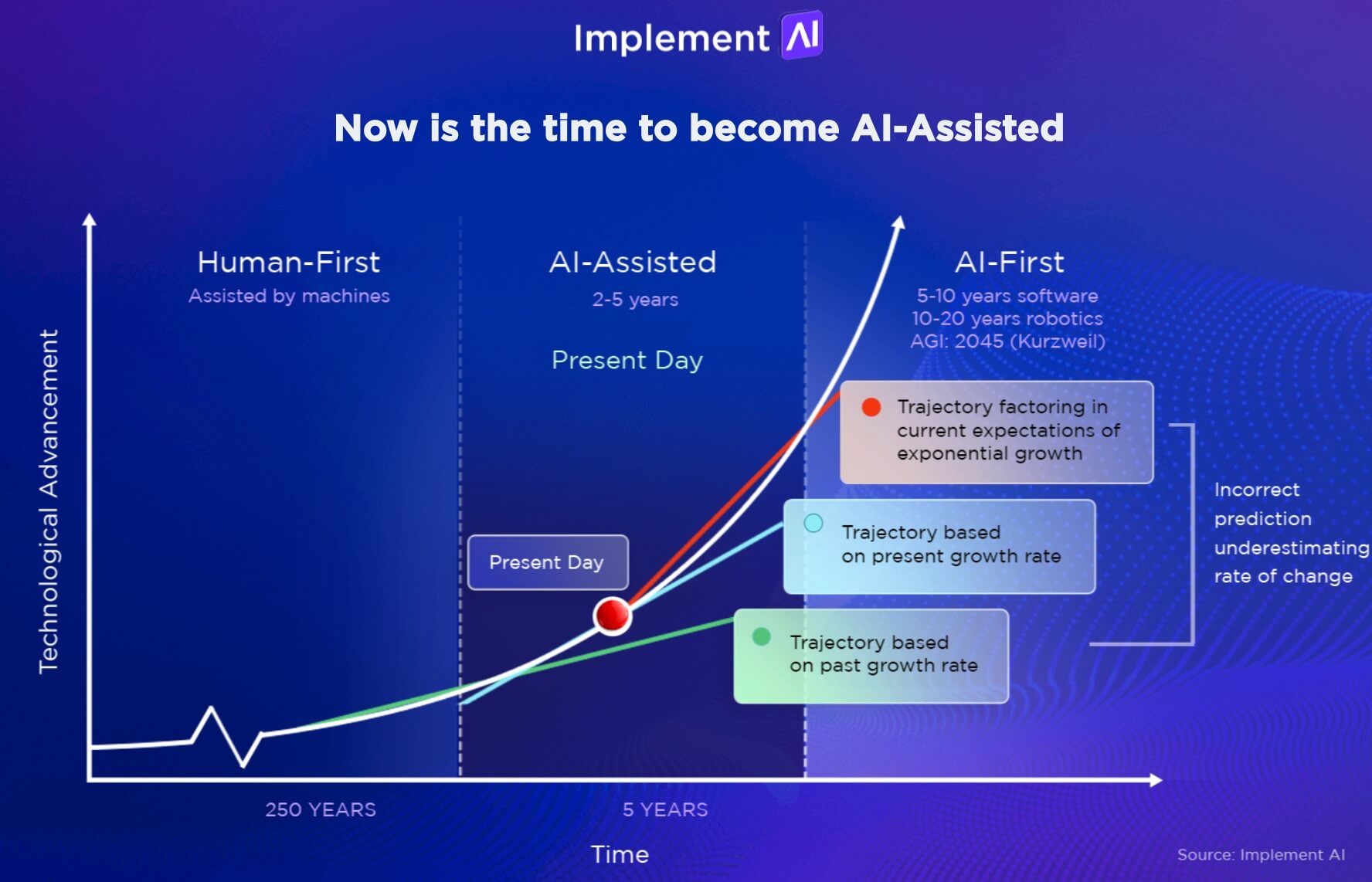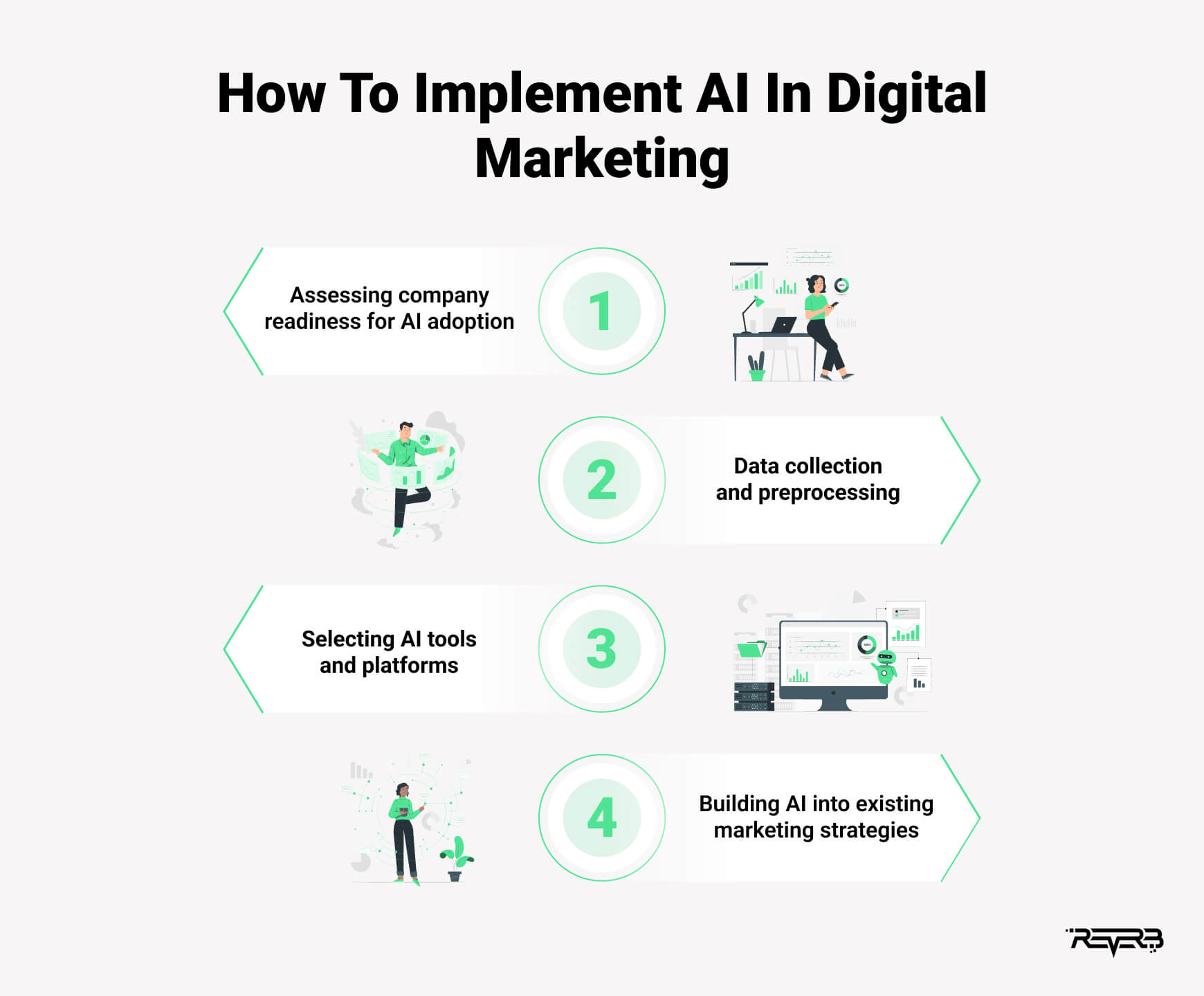Content
SHARE

The marketing world is constantly evolving, and one of the most exciting developments in recent years has been the emergence of artificial intelligence (AI) in the field. In particular, AI has proven to be a powerful tool for enhancing mobile marketing strategies. With predictions indicating that AI will play an even greater role in 2025 and beyond, marketers need to understand how to leverage this technology effectively.
Understanding the Role of AI in Mobile Marketing
Before delving into the specifics of AI in mobile marketing, it is crucial to grasp the basics of artificial intelligence in marketing in general. AI refers to computer systems capable of performing tasks that typically require human intelligence, such as analysing data, making predictions, and learning from patterns. AI can automate processes, personalise experiences, and improve overall campaign effectiveness in marketing. The shift towards AI-driven mobile marketing has been driven by the growing importance of mobile devices in consumers’ lives. With smartphones and tablets becoming the primary means of internet access, marketers must adapt their strategies accordingly. AI provides a way to better analyse vast amounts of data to understand consumer behaviour, preferences, and purchasing patterns, allowing for highly targeted and personalised marketing efforts.
One of the key advantages of AI in mobile marketing is its ability to automate processes. Traditionally, marketers would spend hours manually analysing data and making predictions based on their findings. However, AI can automate these tasks, saving marketers valuable time and resources. AI algorithms can quickly analyse large datasets, identify patterns, and make predictions based on historical data. This allows marketers to make data-driven decisions and optimise their campaigns in real-time. Another important aspect of AI in mobile marketing is its ability to personalise consumer experiences. With vast data available, AI algorithms can analyse individual consumer preferences and behaviours to deliver highly targeted and relevant content. For example, AI can analyse a user’s browsing history, purchase history, and social media activity to understand their interests and preferences. This information can then be used to deliver personalised recommendations, offers, and advertisements, increasing the likelihood of conversion.
In addition to automation and personalisation, AI in mobile marketing also improves overall campaign effectiveness. By analysing large datasets, AI algorithms can identify trends and patterns that may not be immediately apparent to human marketers. This allows for more accurate targeting and segmentation, ensuring marketing efforts are directed towards the most relevant audience. AI can also help optimise campaign performance by continuously learning and adapting based on user interactions and feedback. This iterative process allows marketers to refine their strategies and achieve better results.
It is worth noting that AI in mobile marketing has challenges. Privacy concerns, data security, and ethical considerations are all important factors that must be addressed. Marketers must use consumer data responsibly and comply with relevant regulations. Transparency and consent are crucial in building trust with consumers and maintaining a positive brand image. AI has revolutionised mobile marketing by providing marketers with powerful tools to automate processes, personalise experiences, and improve overall campaign effectiveness. With the growing importance of mobile devices in consumers’ lives, AI-driven mobile marketing is becoming increasingly essential for businesses to stay competitive. However, addressing AI’s challenges and ethical considerations is important to ensure its responsible and effective use.
The Future of AI in Mobile Marketing for 2025
Looking ahead to 2025, several predicted trends highlight the growing importance of AI in mobile marketing. One such trend is the increased use of chatbots and virtual assistants, which can provide personalised recommendations, answer customer queries, and even facilitate purchases. These AI-powered chatbots can enhance the user experience and increase customer satisfaction. Imagine a world where every interaction with a mobile app feels like a conversation with a knowledgeable friend. Chatbots and virtual assistants will become integral to our daily lives, seamlessly blending into our mobile experiences. They will be able to understand our preferences, anticipate our needs, and provide us with tailored recommendations. Whether it’s finding the perfect restaurant for a special occasion or suggesting the latest fashion trends, AI-powered chatbots will be our trusted companions in the mobile marketing landscape of 2025.
Furthermore, AI will shape mobile marketing strategies in 2025 by enabling marketers to leverage advanced algorithms for predictive analytics. By analysing past data and identifying patterns, AI algorithms can help businesses anticipate customer needs and preferences, allowing for proactive and targeted marketing campaigns. This predictive capability will be a game-changer for marketers seeking to maximise their return on investment. Picture this: a mobile marketing campaign that knows exactly what you want before you even do. Through AI, marketers will be able to create hyper-personalised experiences that resonate with each customer. Gone are the days of generic advertisements that feel irrelevant and intrusive. In 2025, AI will enable marketers to deliver targeted messages that are tailor-made for them.
But AI’s impact on mobile marketing doesn’t stop there. In addition to chatbots and predictive analytics, AI will revolutionise how we analyse and interpret user data. With the help of AI algorithms, marketers will be able to gain deeper insights into customer behaviour, preferences, and purchasing patterns. This wealth of information will allow them to refine their marketing strategies and make data-driven decisions that drive business growth. Imagine a marketing team armed with the power of AI, able to unlock the secrets hidden within vast amounts of data. They will be able to identify trends, spot opportunities, and make strategic decisions that give their businesses a competitive edge. AI will be the driving force behind a new era of mobile marketing, where data is king and insights are the currency of success.
The future of AI in mobile marketing for 2025 is bright and full of possibilities. From AI-powered chatbots that enhance the user experience to predictive analytics that enable targeted marketing campaigns, AI will revolutionise how we engage with mobile apps and brands. The power of AI lies in its ability to understand and anticipate customer needs, providing personalised experiences that drive customer satisfaction and business growth. So, buckle up and get ready for a mobile marketing landscape that is smarter, more intuitive, and more exciting than ever before.
(Source: https://reverbico.com/blog/ai-in-digital-marketing/)
Implementing AI in Your Mobile Marketing Strategy
Integrating AI into your mobile marketing strategy may initially seem daunting, but following a few key steps can streamline the process. Defining your objectives and identifying areas where AI can add value is crucial. Whether improving customer segmentation, optimising ad targeting, or automating customer support, having clear goals will guide your AI implementation. Once you have identified the relevant use cases, you can select the appropriate AI tools and technologies. Whether it’s machine learning algorithms, natural language processing, or image recognition, various AI solutions are available. Choosing the ones that align with your specific needs and resources is essential. Finally, overcoming challenges in AI implementation requires a dedicated and skilled team. It is crucial to have individuals who understand AI concepts and can effectively analyse and interpret the insights generated by AI algorithms. Providing proper training and support to your team will ensure a successful integration of AI into your marketing plan.
Measuring the Success of AI-Enhanced Mobile Marketing
As with any marketing strategy, measuring the success of your AI-enhanced mobile marketing efforts is essential. Key performance indicators (KPIs) specific to AI marketing include metrics such as customer engagement, conversion rates, and customer satisfaction scores. By analysing these KPIs, you can gauge the effectiveness of your AI initiatives and make data-driven decisions to optimise your campaigns.
Furthermore, AI significantly impacts marketing return on investment (ROI). AI can increase revenue and reduce wasted ad spend by enabling more targeted and personalised marketing efforts. It is crucial to regularly analyse the ROI of your AI-driven campaigns to ensure they align with your business objectives and deliver tangible results.
(Source: https://www.orientsoftware.com/blog/ethics-in-ai/)
Ethical Considerations in AI-Driven Mobile Marketing
While AI holds immense potential for enhancing mobile marketing strategies, addressing ethical considerations surrounding its use is crucial. Respecting user privacy is paramount; consumers must have full transparency and control over the data collected and used for AI-driven marketing efforts. Implementing robust data protection mechanisms and obtaining explicit user consent are key to establishing trust. Additionally, ensuring fairness and transparency in AI algorithms is essential. Bias in AI algorithms can lead to discriminatory practices and unfair treatment of certain individuals or groups. Regular audits and testing of AI algorithms are necessary to identify and rectify any biases, ensuring that marketing efforts using AI are inclusive and unbiased.
In conclusion, leveraging AI for enhanced mobile marketing strategies in 2025 and beyond offers incredible opportunities for marketers. Understanding the role of AI in mobile marketing, the predicted trends, and the steps to implement AI are all crucial aspects of staying ahead in this ever-evolving landscape. By measuring the success of AI initiatives and adhering to ethical considerations, businesses can harness the power of AI to drive meaningful results and deliver personalised experiences to their mobile marketing audiences.
Frequently Asked Questions About How to Leverage AI for Enhanced Mobile Marketing Strategies
How Can AI Enhance Mobile Marketing Strategies?
AI enhances mobile marketing by enabling hyper-personalised content delivery, optimising ad targeting and timing, analysing user behaviour for improved engagement strategies, and automating customer service through chatbots.
What AI Technologies Are Pivotal For Mobile Marketing in 2025?
Key technologies include machine learning for predictive analytics, natural language processing for chatbots and voice search optimisation, AI-driven content recommendation engines, and real-time data analysis tools for targeted marketing.
What Are the Benefits of Using AI in Mobile Marketing?
The benefits include increased engagement, higher conversion rates through personalised experiences, efficient ad spend with better targeting, improved customer satisfaction, and significant time savings on routine tasks.
How Do You Implement AI in Your Mobile Marketing Strategy?
Implementing AI involves integrating AI-powered analytics to understand user behaviour, deploying chatbots for 24/7 customer interaction, utilising AI for personalised content and recommendations, and employing predictive analytics to forecast trends and customer needs.















